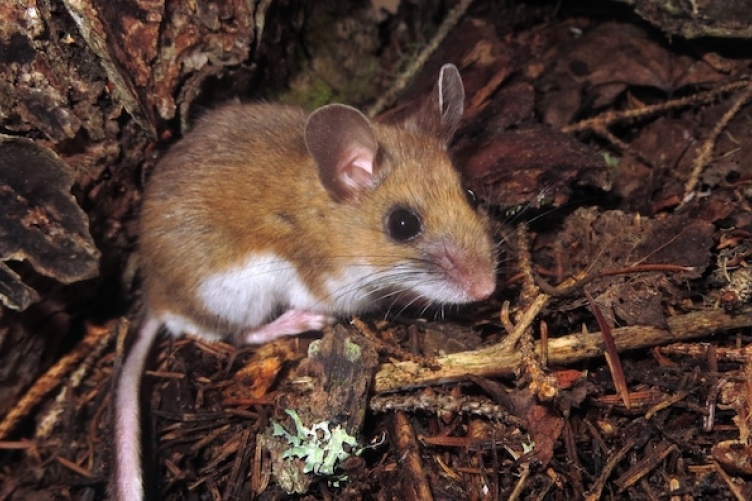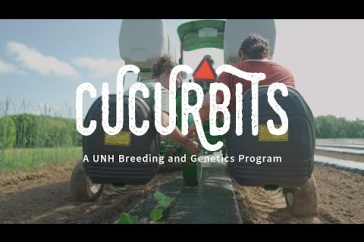
Small mammals such as mice and chipmunks who are not picky eaters play a more important role than previously known in dispersing the spores of wild mushrooms and truffles, according to new research from the New Hampshire Agricultural Experiment Station at UNH.
“Because they use a wide variety of habitats, they can also disperse spores to areas that dietary specialists rarely inhabit.”
Mushrooms and truffles colonize the roots of plants and assist with water and nutrient uptake. They also play a fundamental role in helping reestablish plants following disturbances such as wildfires, volcanic eruptions and the retreat of melting glaciers.
The research was conducted by Ryan Stephens, a postdoctoral researcher, and Rebecca Rowe, associate professor of natural resources and the environment. More than 1,200 scat samples were collected from small mammals in the White Mountain National Forest and analyzed. The researchers found that rodent species that consume a wide variety of food items can be important dispersers of the spores produced in fruiting bodies such as mushrooms and truffles. They are especially effective when their population increases.
“When generalist rodent populations are on the rise, they can disperse more fungal spores than dietary specialists such as the southern red-backed vole that consume fungi as their main food source,” said Stephens. “Because they use a wide variety of habitats, they can also disperse spores to areas that dietary specialists rarely inhabit.”
In addition, these mice and chipmunks disperse fungal spores at a time when many seeds are germinating, which is key for the survival and growth of tree seedlings.
Scientists long thought specialists such as northern flying squirrels and southern red-backed voles that consume fungi as their main food were the most important dispersers of mycorrhizal fungi. These new findings are important as mycorrhizal fungi are key components to forest sustainability and health. Fungi colonize plant roots and assist with water and nutrition uptake. All tree species in New England form this mutualistic association, and some tree species cannot survive without it.
This research is presented in the journal Ecology. It is based upon work supported by the NH Agricultural Experiment Station, through joint funding of the National Institute of Food and Agriculture, U.S. Department of Agriculture, under award numbers 1016133 and 1006881, and the state of New Hampshire. Additional support was provided by the Northern Research Station of the USDA Forest Service, UNH Natural Resources and the Environment Student Support Fund, American Society of Mammalogists, and the Mycological Society of America: Forest Fungal Ecology Research Award.
-
Written By:
Lori Tyler Gula, PhD | NH Agricultural Experiment Station | lori.gula@unh.edu | 603-862-1452



















































